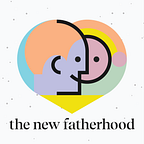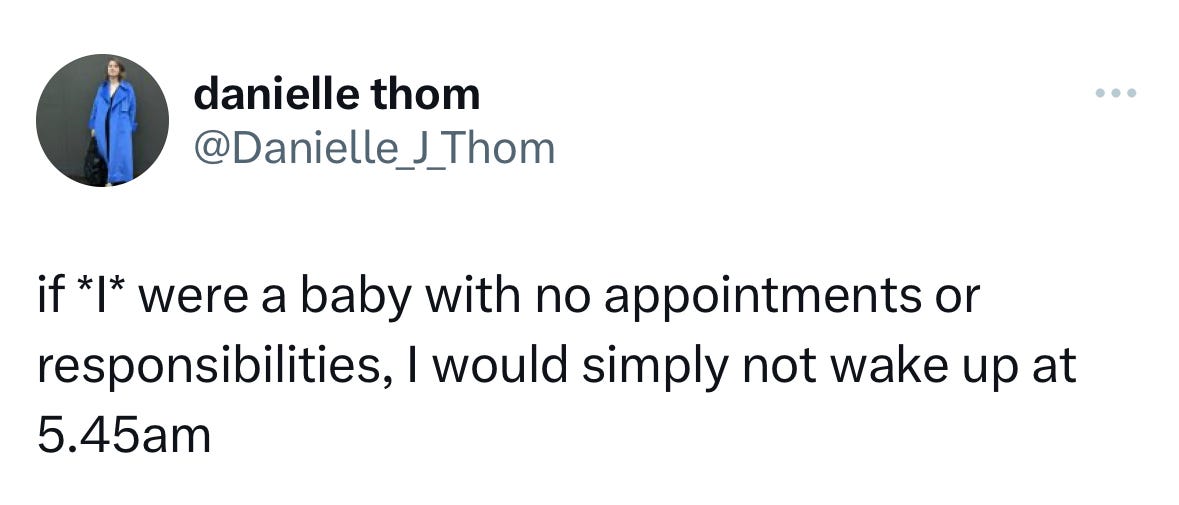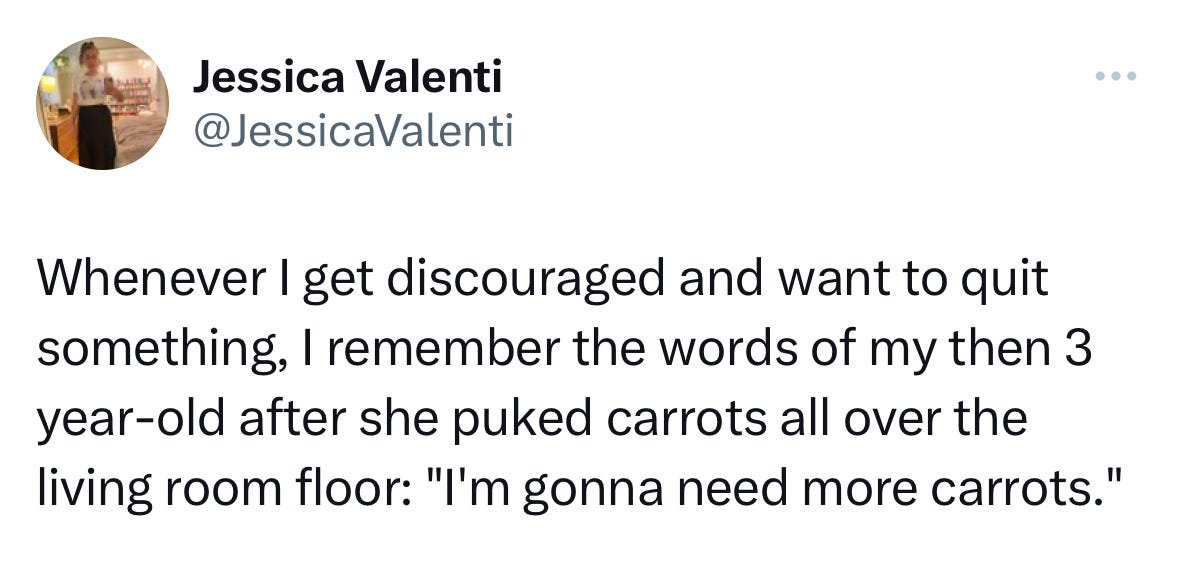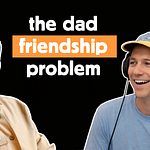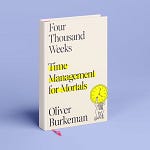This week’s newsletter is a hybrid of something old and something new, so a little context is required.
Over the two-and-a-half years I’ve been writing here, I’ve had conversations with some great thinkers, writers and doers that have made me consider fatherhood, and my experience of being a dad, in a new light. I’ve featured some of these exchanges in the newsletter before, but thanks to recent advances in AI I’ve been able to take old recordings and whip them up into near-studio quality.
As a parent, I know your time is precious, and am grateful for every minute you spend here. I wanted to find a way to share these interviews in a fatherhood-friendly way—because ain’t nobody got time for two-hour-long unedited conversations. After reading the average school run was 28 minutes long, I’m aiming to create a series of podcast episodes that hit this length. That way, you should be able to fit it in whilst on your way home, or to work, after dropping off the kids. For those folks who don’t dig podcasts, each discussion will come with a companion essay, the first of which you can find below.
I’m delighted to open this series with author Daniel H. Pink. Our conversation was recorded early last year after the release of his excellent book The Power of Regret, which invited readers to consider this oft-maligned emotion in a new light. I’ve got more episodes in the can that will grace your ears soon, covering the topics we regularly return to in the newsletter. You can expect one new episode every month—that feels like a cadence that won’t destroy me?!—and I’m beyond excited to share them with you. A very special thanks to Max McCabe, who is taking the reins on audio production and killing it right out of the gate.
If you’re signed up for the newsletter, you’ll get the podcast in your inbox (or the Substack app) every time. If you’d rather listen in your player of choice, I’d love to say it’s “available everywhere you listen to podcasts” but that’s not the case yet (shakes fist at Google Podcasts). You can, however, subscribe with any of these links: Apple Podcasts, Spotify, Overcast, Pocket Casts and Amazon Music. Those should cover the vast majority of folks here. If not, let me know where you can’t find it.
As always, I’d love to hear what you think. Reply to this email, or use the feedback links below.
— Kevin

I’ve struggled with imposter syndrome my entire life. So many jobs began with a fear of being found out: instantly uncovered as a fraud, rumbled within days, pulled out of my Aeron Chair and marched to HR and forced to turn in my laptop and security card, like a loose cannon cop disobeying his superiors for the last time.
In my mid-20s, I started a job at a leading advertising agency in London. I was petrified—my recruiter congratulated me on acing the interview, informing me this team of “digital planners” were the best of the best, some of the brightest digital thinkers in the country. The need to “not fuck things up” hit hard. I devoured what I felt were the “right” books, discovering how the latest research in social psychology and behavioural economics could be applied in the world of advertising—reading Thinking Fast and Slow, Predictably Irrational and Nudge, to name a few—in an attempt to convince my new colleagues into thinking I was up to the job. From that period, it was Daniel Pink’s Drive and its framework for understanding the motivations of the modern worker—their need for Drive, Autonomy and Purpose—that stayed with me the longest. It’s formed part of the blueprint for my approach to work ever since.
In what is fast becoming a pattern for this newsletter, I contacted a writer I admire and asked if they’d be interested in talking about their work, how fatherhood contributed to their creative output, and how they’ve applied what they’ve learned to raising their kids. And Daniel Pink kindly told me ... “No.” To be fair, he told me he was “turning down everything else, however modest and worthy, for the rest of the year so I can maintain my focus on putting the finishing touches on a new book.” He helpfully suggested getting back in touch in the new year if "your readers might be interested in the power of regret.”
Six months later, there we were. Talking about where parenting and regret overlapped, how this emotion became so misunderstood, and its potential to become a superpower—if only we could harness it.
“Regret is not dangerous or abnormal, a deviation from the steady path to happiness. It is healthy and universal, an integral part of being human. Regret is also valuable. It clarifies. It instructs. Done right, it needn’t drag us down; it can lift us up.”
— The Power of Regret, Daniel Pink
The Power of Regret starts by exploring society’s erroneous celebration of the absence of regret. We are taught to avoid its hostile embrace: we must carpe diem, seize all of the days, as we walk through the streets looking forward, Airpods blasting the anthem of the forward-thinker, banishing regret into a locked box and shoving into the back of an emotional cupboard, never to be opened. But throughout the book, Pink convincingly argues that if we can welcome this sentiment—applying a framework to understand how we can work with it, rather than fear it—we can move forward with purpose and have past failures inform future success. “Our goal should not be to always minimise regret,” Pink writes. “Our goal should be to optimise it. If we look backwards with the intent of moving forward, we can convert our regrets into fuel for progress. They can propel us toward smarter choices, higher performance, and greater meaning.”
There’s one problem with this approach, I confessed to him as we spoke. As someone who—before this book—spent a life worshipping at the church of no regrets, there’s a clear connection between what might be a helpful emotion and the disastrous negative cycle of rumination. Whilst a sense of acceptance can help us see each “mistake” as a step closer to the life you end up living, it’s easy to slip down a sheer face and fixate on all the times life didn’t go to plan. I suggest that the path of regret should be signposted, “Here be dragons”, warning travellers of the fine line that could lead them into the abyss of rumination.
“There's definitely a line there,” offers Pink. “But no one's ever taught us how to deal with negative emotions. No one's ever taught us how to arrest that march toward the line. The line is clear. It's just that our footing isn’t sound, so we end up slipping forward.”
Whilst researching the book, Pink called for willing participants to share their greatest regrets in the World Regret Survey, with 20,000 submissions pouring in from 109 countries. I wanted to understand the regrets reported by parents. The primary revelations, Pink shares, were of “beliefs around instilling prudence and conscientiousness in their kids.” Some parents regretted being too hands-off, resulting in kids running wild. Others were at the opposite end of the scale, worried that they’d passed on a burden of caution that distorted the way their children perceived the world. He has some good news for either end of the argument: “The idea that a parent alone shapes the child is overstated.”
In an avalanche of entries, Pink wrote that “fewer than twenty participants” regretted having children:
“We know from other research that when we’re raising kids the first 20 years actually reduces our day-to-day hedonic satisfaction and wellbeing. Yet very few people regret it. It means parenting offers something beyond pleasure-driven satisfaction, it's delivering something more important—meaning, purpose, and love. Even if changing diapers is a pain in the butt.”
— The Power of Regret, Daniel Pink
Did parents’ regrets change when their children became adults? “The most poignant parenting regrets were from those who had drifted apart from their kids later in life,” Pink shared. “Every once in a while through some kind of dramatic route. But in most cases, in a much slower, less dramatic way.”
Pink believed so many were driven to confess their deepest feelings to his survey because “emotions are abstract. That’s what makes positive emotions feel good and what makes negative emotions feel bad. They're amorphous. But when you write about negative emotions, you transmute them in a way. You convert this abstraction into concrete words, which are inherently less fearsome. It's unburdening and sensemaking.”
His own life as a father wasn’t free from regret: “I might have tried to do more than one short stint overseas as a family. I might have said, ‘Let's do it. Let's take a couple of years out of the United States.’ I think I would have done that.”
Soon after our conversation, once the kids were in bed, I fell into the couch and sunk into the multi-layered world of Inception. It’s been a while since I spent time in Christopher Nolan’s mind meld, and it was the first rewatch since having kids of my own. I had been writing this essay in previous days, which offered a fresh perspective on the thread of regret woven through the movie. Dom Cobb—Leonardo Di Caprio’s totem-spinning lead—is submerged deep in the clutches of rumination: the guilt he feels over the death of his wife, abandoning of their children during a life-defining moment, and the pain of being unable to return home and see their faces once again. Edith Piaf pops up in a recurring cameo, “Non, je ne regrette rien” waking various characters from their slumber; the song’s trombone slowed and transmuted into Hans Zimmer’s iconic—and much imitated—booming foghorn, ratcheting up the tension and filling the viewer with dread. Cobb descends into a pit of despair, an elevator of his own making, constructed to house his deepest pain and lock them away in an attempt to escape becoming “an old man, filled with regret, waiting to die alone.”
My feelings toward regret have shifted since reading Pink’s book and our conversation. It’s no longer an emotion I’ll instantly reject but one to now cautiously handle and use as a personal development tool. The book has also changed how I’ll talk about regret with my children, a belief that he shares: “A lot of our kids—not little kids like yours, but adolescents, teenagers, young men and women in their early 20s—are being brought down by negative emotions. They're slipping over the edge. And it's not because they're inherently flawed. It's because they haven't been taught that these emotions—fear, regret, envy—are part of life. And there are systematic ways to respond to them without them overwhelming you.”
At our core, human beings are little more than sense-making machines. We perceive the world around us, hoping to use the signals we see to make our life simpler, happier, and more productive. Understanding our regrets enables us to wire them back into self-narrative positively, reconfiguring our story as the shockwaves pass through the past, present and future, becoming waypoints for the burdens that didn’t kill us but made us stronger. Pink’s book implores us to see regret not solely as the wrong choices we made but also what he terms “inaction regrets,” those that litter the path not taken:
“Twenty-year-olds had equal numbers of action and inaction regrets. But as people grew older, inaction regrets began to dominate. By age fifty, inaction regrets were twice as common as action regrets.”
— The Power of Regret, Daniel Pink
Many of us have contemplated significant changes in our lives over the last few years—the work we do, the place we live, the company we keep. The book permits—no, compels—us to make that leap into the unknown, as research indicates we’re far more likely to regret not doing something. As the famous US journalist Sydney J. Harris once wrote, “Regret for the things we did can be tempered by time; it is regret for the things we did not do that is inconsolable.”
Pink signs off our conversation with advice for those considering a seismic shift: “We should all have a slight bias for action. The 2:1 ratio teaches us something. It teaches us that we should try more stuff. It gives parents guidance to go do that thing, go on that trip with your kids. You are not going to regret it in 20 or 30 years. You're truly going to treasure that.”
Good Dadvice
Say Hello
Mixing it up again. How was it? Your feedback helps me make TNF better.
Loved | Great | OK | Meh | Bad
Thanks to the overwhelming number of you who shared your love for Dec Bowning’s McDonald’s essay last week. Clearly, it pulled on your heartstrings as much as mine. Thanks to paid subscribers who enable me to stump up the cash for guest writers like Dec, illustrators like Tony Johnson and editing wizards like Max McCabe.
A reminder that The New Fatherhood is an advertising-free zone. Everything that happens here is possible thanks to the kind, generous, and frankly gorgeous folks who keep the lights on. Today is a great day to join their ranks. Don’t be like Ron.


